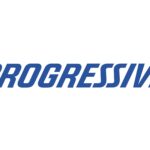Calling it a matter of public safety, a state lawmaker convinced an Oklahoma House committee to extend state oversight to companies that act as a middleman between pharmacies and people filling prescriptions through their employer’s health insurance.
Pharmacy benefit managers, or PBMs, are private companies that contract between employers and pharmacies, often arranging for workers to receive their prescription drugs through the mail.
The legislation would require PBMs to get a license from the Oklahoma State Board of Pharmacy and to share more information with customers about their inner workings.
Rep. David Derby, a pharmacist and the bill’s sponsor, said the measure would bring the companies under state oversight for the first time.
“We’ve got somebody out there who’s making life decisions for you and your constituents that are not regulated in the state of Oklahoma,” the Owasso Republican told the House Public Health Committee, which he chairs. “They are totally unregulated.”
The committee approved the bill 7-3. It now moves to the full House.
Derby, who works as a pharmacist at a Wal-Mart, told The Associated Press before the hearing that the bill is meant to bring all prescription drug-related businesses working in the state under consistent regulation.
“As a pharmacist, I have to follow certain guidelines,” he said. “However, with PBMs using mail-orders out of state, particularly dealing with Florida, they follow Florida law even though the prescription was written in Oklahoma.”
As health management organizations do with hospital networks, PBMs such as Express Scripts and CVS Caremark claim to save employers and employees money by negotiating drug prices with pharmacies on their behalf. Their contracts cover roughly two-thirds of the country’s population, according to the Pharmaceutical Care Management Association, a national PBM advocacy group.
However, PBMs aren’t required to reveal whether they have special relationships or agreements with drug manufacturers or pharmacies to steer customers toward certain drugs, according to John Faust, the Oklahoma pharmacy board’s executive director.
“You may be paying a higher amount than you would with another company, and neither you nor your employer would know about it,” Faust told the AP.
Faust said PBMs sometimes modify prescriptions – changing it to a generic or changing its term from 30 to 90 days, for example – before the prescription is sent to the PBM’s contracted pharmacy. Derby’s bill would require PBMs to disclose how much they stand to profit by directing customers to different drugs, among other information.
“Whatever things go on inside that PBM, that I know of, there is no oversight by anyone of what goes on in that office,” Faust said. “Let’s say that you have a disagreement with what occurred in that office. Who do you call to complain?”
Faust emphasized that any pharmacy that mails prescriptions to Oklahoma already must be licensed, but a PBM doesn’t, even if it makes those pharmacy-like decisions.
But a spokesman for the Pharmaceutical Care Management Association, which opposes the bill, disputed Faust’s claims that PBMs were unregulated and could modify prescriptions.
“That’s not correct – the clinician or physician makes the decision,” spokesman Charles Cote said. He said employers contacting with PBMs can specify whether to emphasize generics or other drug details.
Cote accused the Oklahoma State Board of Pharmacy, which is mostly made up of pharmacists, of trying to regulate companies negotiating their payments. That’s a conflict of interest, he said, that would raise costs for employers and employees.
“It provides pharmacists with competitive information that they otherwise wouldn’t have,” Cote said. “They can in turn raise prices.”
But Derby countered that transparency would help employers make better decisions in contracts with PBMs, enhancing competition.
Faust added that the pharmacy board was formed to protect customers from pharmacists, not the other way around. He also said that a local PBM in Oklahoma City pushed for the bill, though he declined to name the company and directed the AP to its attorney, former Attorney General Larry Derryberry. Derryberry’s office did not return a request for comment.
“We did not request this bill,” Faust said. “While I recognize the concern, I think if you look at the history of our board, they try very hard to be objective.”
Topics Legislation Oklahoma
Was this article valuable?
Here are more articles you may enjoy.


 Florida Public Adjuster, Renter Charged With Filing Claim on Rental Home
Florida Public Adjuster, Renter Charged With Filing Claim on Rental Home  Progressive Records Five-Fold Increase in Q1 Net Income
Progressive Records Five-Fold Increase in Q1 Net Income  Coral Gables, Florida Tops Beverly Hills as Ritziest Home Market in US
Coral Gables, Florida Tops Beverly Hills as Ritziest Home Market in US  Former MLB Player, 3 Others Charged with Staging Auto Accident in Miami
Former MLB Player, 3 Others Charged with Staging Auto Accident in Miami 

